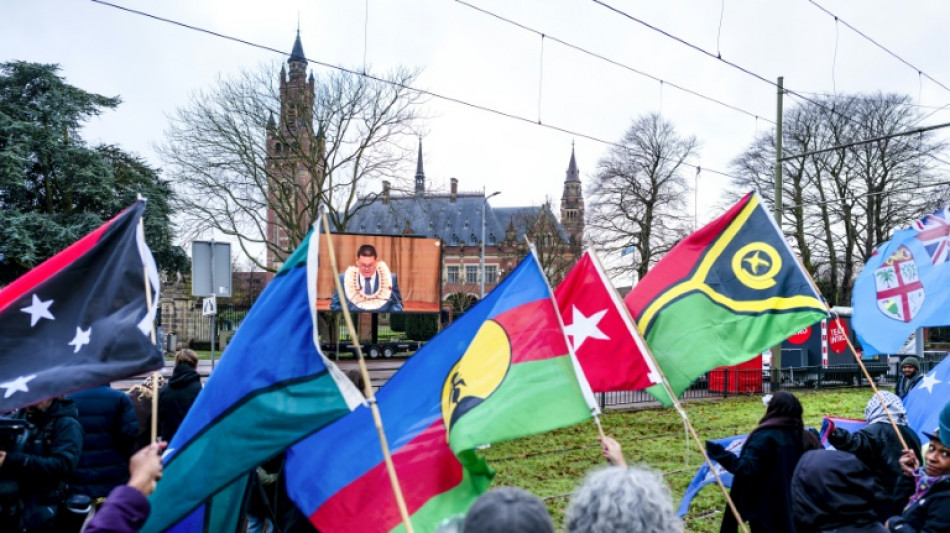
NGG
0.2400


Young people from small island states -- the driving force behind the climate change hearings at the International Court of Justice -- have provided a breath of fresh air to proceedings and gut-wrenching testimony from the front-line.
Many were presenting their country's first-ever ICJ submission and did not mince their words in the Great Hall of Justice, normally the scene of weighty legal arguments from austere lawyers in robes and wigs.
"The outcome of these proceedings will reverberate across generations, determining the fate of nations like mine and the future of our planet," said Vanuatu's representative Ralph Regenvanu, opening the hearings.
"This may well be the most consequential case in the history of humanity. Let us not allow future generations to look back and wonder why the cause of their doom was condoned," added Regenvanu.
Several speakers wore vibrant national dress, also sporting traditional necklaces and headdresses, a marked contrast to the sober suits usually seen in the Peace Palace.
Showing powerful images of devastation to the judges, many portrayed the battle against the worst ravages of climate change as nothing short of an existential struggle for survival.
"Saint Lucians live with a ticking clock at the start of every single hurricane season, which... causes cataclysmic devastation," said the Caribbean island's representative, Jan Yves Remy.
"Our fisherfolk complain already of dwindling catches. Many of our pristine beaches, including the one my father grew up on... have been replaced by barren rocks," she added.
- 'Story of inspiration' -
Most vulnerable island nations took aim at wealthy large polluting countries for failing to provide sufficient funding to mitigate the effects of climate change.
"As seas rise faster than predicted, these states must stop. This court must not permit them to condemn our lands and our people to watery graves," thundered John Silk from the Marshall Islands in Micronesia.
The tiny Melanesian island nation of Vanuatu spearheaded the drive to bring the case to the ICJ, corralling a group of countries to push the United Nations to ask its top court for its opinion.
The initiative began in a classroom at the University of the South Pacific in 2019.
About 27 law students wrote to Pacific leaders asking them to take up the campaign -- and Vanuatu answered the call.
Five years later, one of those students, Vishal Prasad from Fiji, stood on the steps of the Peace Palace and told journalists that the initiative was the culmination of an idea that seemed "ambitious, crazy, weird and insurmountable".
Asked what he would tell his fellow students, the 28-year-old said: "We have done what we set out to do. We have taken the world's biggest problem to the world's highest court."
"It's a story of inspiration to everyone, especially to young people who may not find hope in what's happening around them," said Prasad.
"But if they look within and if they look in the community of young people, there is enough inspiration, enough hope to get us through this."
S.Fujimoto--JT